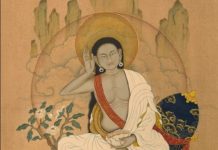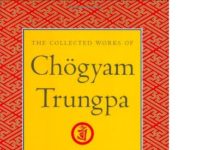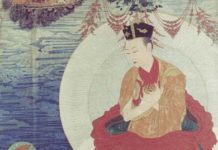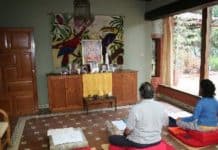On Chögyam Trungpa
Chögyam Trungpa Rinpoche is the quintessential spiritual guide. His teachings—steeped in ancient tradition and presented with relaxed fluency in western language and culture—are profound, accessible, and fresh. In addition to the buddhadharma, he offered the secular path of Shambhala, cultivating an appreciation of inherent bravery, dignity and goodness beyond cultural and religious bounds. Through his many books, Trungpa Rinpoche continues to be an incomparable source of wisdom and courage in the world. The Chronicles is an ongoing celebration of his profound teachings and life example.
Copyright Diana J. Mukpo. Used here by arrangement with Diana J. Mukpo and Shambhala Publications, Inc.
These teachings by Chögyam Trungpa are selected at random from Ocean of Dharma Quotes of the Week: the email service that brings Trungpa Rinpoche’s dharma to your inbox several times each week. For more information, or to add your name to the list, visit OceanofDharma.com.
Ocean of Dharma Quotes of the Week is edited and produced by Carolyn Rose Gimian. Thank you to Lady Diana Mukpo, Mrs. Gimian, and Shambhala Publications for making these teachings available on the Chronicles.
The Lion’s Roar
The Lion’s Roar is the fearless proclamation that any state of mind, including the emotions, is a workable situation, a reminder in the practice of meditation. We realize that chaotic situations must not be rejected. Nor should we regard them as regressive, as a return to confusion. We must respect whatever happens in our state of mind. Chaos should be regarded as extremely good news.

















